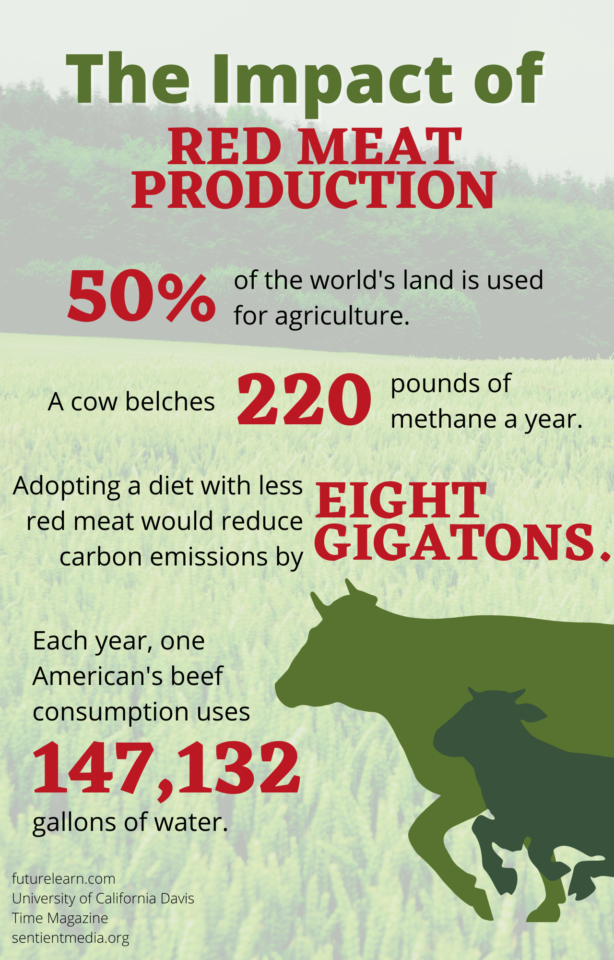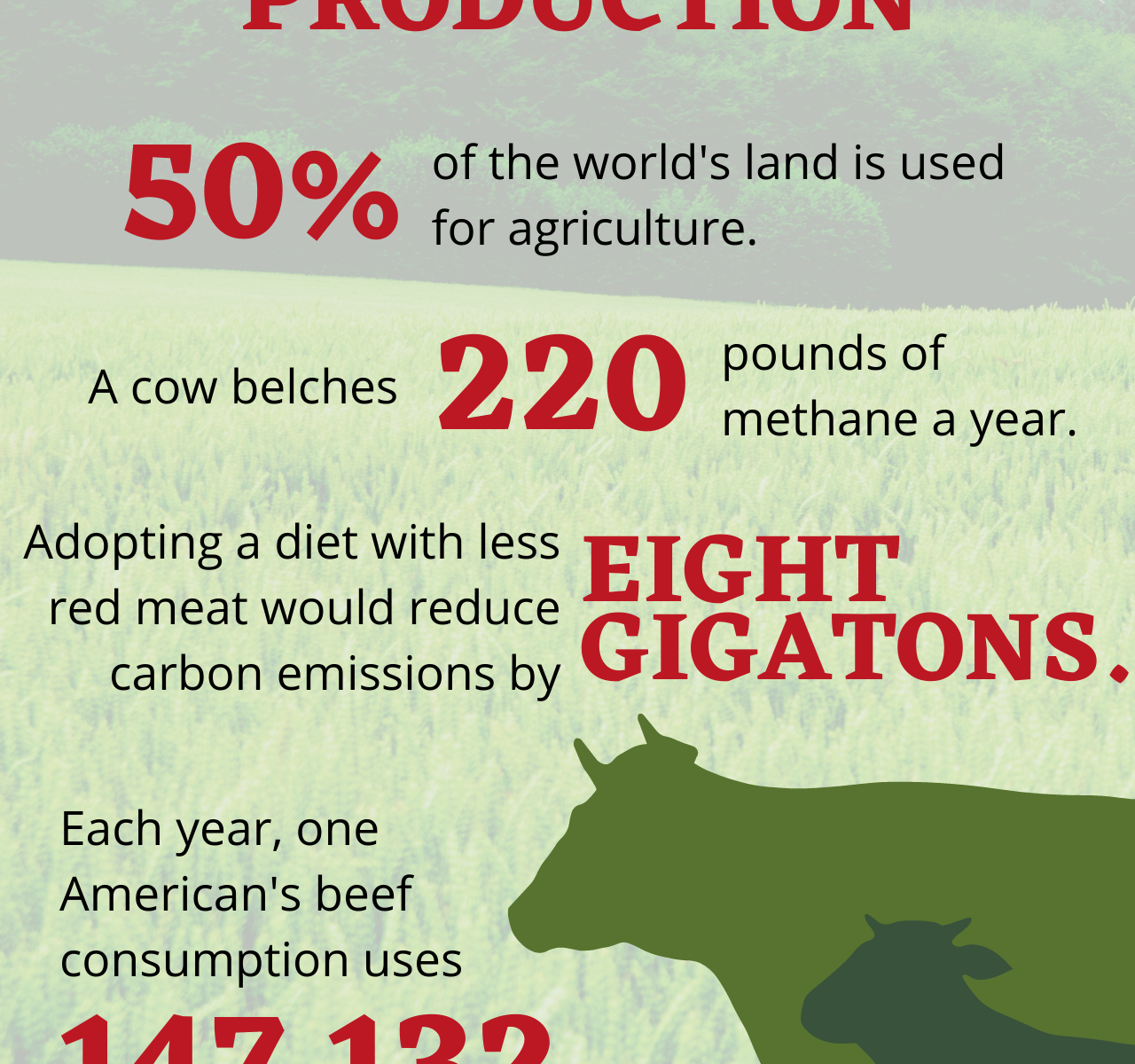
The global climate crisis is becoming more prevalent everyday as humans’ impact on the environment increases. It’s time we did something about it.
Over the last century, our planet has seen dramatic changes to the land we live on due to over-farming and increasing meat consumption. As the population increases, so does humans’ need for food; however, by changing the food we eat and the way it’s produced, humans can help stop the impacts of climate change.
“Estimates suggest that around half of the planet’s habitable land is used for agriculture, with roughly 77% of this used by grazing cattle, sheep, goats, and other livestock,” a 2021 article by FutureLearn says.
One way to reduce our overall climate impact is to stop eating meat.
I understand that asking everyone to stop everything and become vegetarian is a big thing to ask, which is why I’ve chosen to focus on red meat in particular.
Red meat, specifically from cattle, is the most inefficient type of livestock to produce. Not only do cattle take up a lot of space to graze, but they also produce a lot of greenhouse gas emissions as well.
According to an article by TIME magazine, adopting a diet with less red meat could reduce carbon emissions by 8 gigatonnes annually by 2050 and free up millions of square miles of land.
In fact, cattle are the No. 1 agricultural source of greenhouse gases in the world, an article from the University of California Davis stated.
“Each year, a single cow will belch about 220 pounds of methane,” the UC Davis article stated. “Methane from cattle is shorter lived than carbon dioxide but 28 times more potent in warming the atmosphere.”
Not only do cows give off an immense amount of potent methane gas, but they also need a lot of water to survive and to produce market-ready meat.
“It requires two times more water to produce beef than pork and four times more than alternative protein sources such as lentils,” the FutureLearn article stated.
Cows consume anywhere between 3-30 gallons of water every day throughout their lives, which means that the approximate amount of water necessary to produce 1 pound of beef is around 1,800 gallons in total.
According to an article by Sentient Media, Americans consumed what equated to 81.72 pounds of beef per person in 2017, meaning one American’s beef consumption would use 147,132 gallons of water per year.
Besides needing a lot of water, cattle also need a lot of land to live on. Many times, this means cutting down forests to make more room for cattle ranches.
And, fun fact, deforestation also creates an immense amount of carbon emissions that are harmful to the environment.
“Vast swathes of the Amazon are being cleared of habitat for cattle farming and the production of soybean for animal feed,” the FutureLearn article stated. “ Often, deforested areas are cleared using fire. This burning releases huge amounts of carbon dioxide (CO2) into the atmosphere.”
Trees are carbon sinks, which means that trees absorb more carbon from the atmosphere than they release. Deforestation as a result of beef farming is detrimental to the environment as well.
According to an article by TIME magazine, adopting a diet with less red meat could reduce carbon emissions by 8 gigatonnes annually by 2050 and free up millions of square miles of land.
Reduced beef meat consumption means lower emissions from cattle and the water needed to sustain them but also provides an opportunity to reforest land that farmers would have otherwise used for grazing.
Many people think that buying locally bred grass-fed beef can help offset some of the environmental impacts of animal farming, but this is, unfortunately, not the undeniable truth.
Grass-fed beef gain weight more slowly, therefore producing more methane over their longer lifespans. At age 14 to 18 months of age, non grass-fed cows are sent to slaughter after spending the last 120 days of their lives on a high-energy corn diet.
Grass-fed beef lives between 18-24 months and weighs about 1,200 pounds on average as compared to the 1,350 pound average that corn-fed beef weighs.
There is no good evidence to suggest extra pasture time and a solely grass diet reduce cows’ carbon footprint, according to an article by NPR. Although grass-fed beef does have less negative effects on the land they live on, the increased amount of emissions outweighs this.
That being said, I implore you to at least reduce your red meat consumption, if not stop it altogether.
Cam Kauffman can be reached at kauf8536@stthomas.edu.

